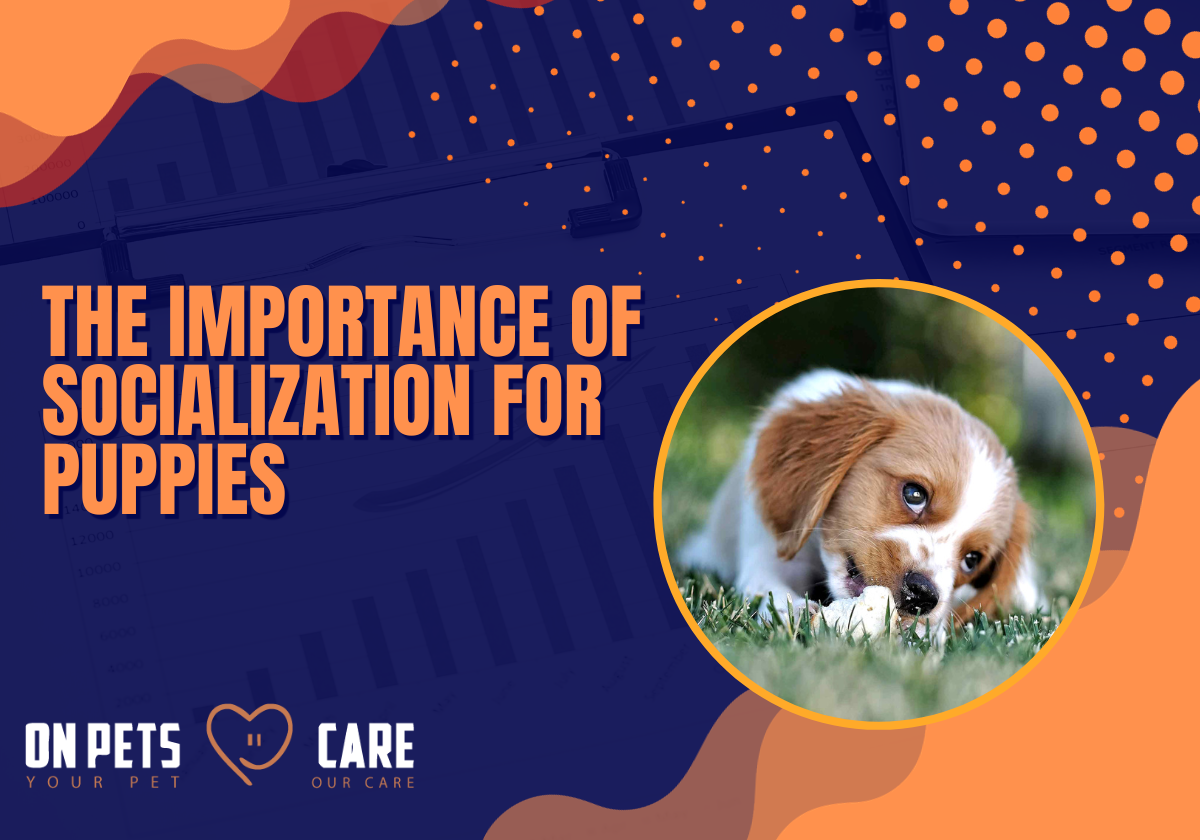The Importance of Socialization for Puppies
Picture this: a playful puppy bounding around, wagging its tail with joy, and interacting fearlessly with other dogs and people. This heart-warming scene isn’t just adorable; it’s a testament to the essential process of puppy socialization that every puppy should undergo.
Welcome to the world of puppy socializing classes, where your furry friend learns, grows, and builds the foundation for a balanced and happy life. In this article, we’re going to dive deep into the importance of socialization for puppies, the benefits of enrolling them in puppy socializing classes, and how this early exposure can contribute to their overall well-being. So, let’s get started!
The Fundamentals of Puppy Socialization
Puppyhood is a crucial developmental phase, and proper socialization during this period can shape a pup’s behavior and outlook on life. Socialization involves exposing your puppy to various experiences, environments, people, and other dogs.
Why Socialization Is Vital for Lifelong Well-being
Socialization is more than just fun outings; it lays the foundation for a dog’s lifelong well-being. Puppies that miss out on proper socialization are more likely to develop fears, phobias, and aggression. On the other hand, well-socialized puppies tend to be friendlier, more relaxed, and better equipped to handle new situations throughout their lives.
Puppy Socializing Classes: Nurturing Skills and Confidence
Enrolling your puppy in puppy socializing classes can be a game-changer. These classes offer controlled environments where puppies can interact under supervision. These interactions enhance their social skills and build their confidence. Trained professionals guide the sessions, ensuring that the experiences are positive and safe.
The Golden Period: When to Begin Socialization
The golden period for puppy socialization is between 3 to 14 weeks of age. During this time, puppies are receptive to new experiences. It’s crucial to expose them to a variety of people, places, sounds, and objects. This period is like a sponge-like phase where they absorb and process information rapidly.
Enriching a Puppy’s Emotional Intelligence
Puppy socialization isn’t just about interactions; it’s about developing emotional intelligence. Exposing your puppy to different situations helps them learn to manage their emotions. From meeting new dogs to encountering novel environments, every experience contributes to their emotional growth.
Puppy Socializing Classes: Fostering Positive Behaviors
In puppy socializing classes, puppies learn to interact with various breeds, temperaments, and play styles. This exposure helps prevent aggression and fear-based behaviors. Through positive interactions, puppies understand appropriate play and communication, which are vital skills for a harmonious life.
The Role of Play in Social Development
Play is a puppy’s language, and it plays a significant role in their social development. Playtime with littermates teaches them bite inhibition and communication skills. Engaging in play with other puppies in a controlled environment further refines these skills and helps puppies understand boundaries.
Overcoming Challenges in the Socialization Journey
While socialization is essential, some puppies might find certain situations intimidating. It’s crucial to proceed at a pace that respects your puppy’s comfort zone. Positive reinforcement and patience can help them overcome challenges and gradually build their confidence.
Puppy Socializing Classes: A Controlled Environment
Puppy socializing classes provide a structured and controlled environment for interactions. This controlled exposure is particularly important for puppies with limited opportunities to socialize naturally. It ensures positive experiences, minimizing the risk of negative associations.
Onpets Care; Your trusted source to socialize your pets:
When it comes to ensuring the holistic well-being of our cherished pets, Onpets Care stands out as a beacon of dedicated service. Our furry companions enrich our lives in countless ways, and their care should be nothing short of exceptional. At Onpets Care, we understand the profound connection between pets and their owners, and we are committed to providing a comprehensive guide to socializing your pets.
The Importance of Socialization for Puppies:
Setting the Stage for Lifelong Well-being cannot be overstated. It’s a foundational aspect of raising a well-adjusted and happy canine companion. Embracing this vital process, along with considering puppy socializing classes, paves the way for a lifetime of positive interactions, adaptability, and emotional intelligence in your furry friend. And just as we prioritize our pets’ socialization, we also recognize the significance of Onpets Care in this journey.
FAQs
Q1: Can I socialize my puppy on my own without classes?
Absolutely! While classes provide structured guidance, you can socialize your puppy by exposing them to various experiences, people, and animals. Just remember to proceed gradually and ensure positive interactions.
Q2: What if my puppy seems scared during socialization?
It’s important to respect your puppy’s comfort level. If they seem scared, don’t force interactions. Give them space and time, and consider seeking professional guidance if needed.
Q3: Is there an age limit for socializing puppies?
While the golden period for socialization is between 3 to 14 weeks, you can continue to expose your puppy to new experiences throughout their life. However, early socialization tends to be more effective.
Q4: Can socialization prevent aggression in adult dogs?
Proper socialization can significantly reduce the risk of aggression and fear-based behaviors in adult dogs. Positive interactions during puppyhood lay the foundation for healthy social behavior.
Q5: My puppy is shy. Should I avoid socialization?
Shy puppies can benefit greatly from positive socialization experiences. Gradual exposure to new situations, people, and dogs can help them build confidence and overcome shyness over time.



